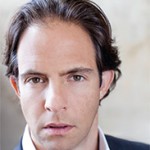A handful of New York City’s most prominent residential developers clashed over the state of the residential market Thursday at a panel event hosted by The Real Deal.
Some of the developers, including Arthur Zeckendorf, Billy Macklowe and Michael Shvo, blamed the press in part for dampening the mood of the luxury residential market with reports of doom and gloom. Meanwhile, Bruce Eichner said the market has slowed down dramatically at the top end of the luxury sector, citing a 50 percent drop in traffic to new developments.
“There’s no liquidity issue, there’s a mood issue,” said Shvo, who’s in the planning stages of a high-rise condo with Bizzi & Partners at 125 Greenwich Street in Lower Manhattan. “The only thing wrong with the market is an oversupply of overpriced, average apartments. Those are in buildings that should not have been built and they’ll suffer.”
Zeckendorf agreed, saying that slowdown “has to do with certain articles coming out,” and that the first quarter was actually very strong in terms of sales.
According to a recent report by Douglas Elliman, there were 288 closed sales in the manhattan luxury market in the first quarter, a 3.7 percent drop from the previous quarter but an 8.3 percent jump from the previous year. That figure includes new development closings for units that initially went into contract several years ago.
Eichner, whose Continuum Company is developing the condo tower at 45 East 22nd Street, [TRData] had a different take on the state of the luxury market than his fellow developers. There is indeed a major supply problem in upper echelons, he said.

Bruce Eichner
“It falls to me to be the guy who says what really is,” he told moderator Amir Korangy, the publisher of The Real Deal. “The reason they write the articles is because of the facts. There are buyers out there but the perception of most buyers is that things are fully priced so they shop all over the place and they take much more time. They actually think they want a discount. Shocking.
“Is the market dead? Of course not. Are we going to be pained? Absolutely,” he said.
Several of the panelists said the $1.3 billion-plus sale of the Sony Building at 550 Madison Avenue, which was slated to go condo, was not a sign that there’s a turn in the market.

Michael Shvo
“That building should have never been a residential conversion,” Shvo said. “It doesn’t have a competitive advantage in this market – it’s not on the park, it has a few units with park views. [Joseph] Chetrit made a tremendous amount of money all things considered.”
Macklowe backed him up: “No one said anything about the death of the office market when they said it would be a condo conversion. Why now when the building goes back to office should it be the clarion call to say the residential market is over?”
Most of the panelists agreed that market conditions vary at different price points, noting that the middle of the market is reasonably healthy in comparison with the top end.

Billy Macklowe
“The market has to be bifurcated between luxury product and super luxury product,” Macklowe said. “We should settle into a more normalized $3,000 to $4,000 a foot market.”
The panelists cited the difficulty in securing construction financing for new condos as a sign that the supply glut may be ease up over the next year.

Arthur Zeckendorf
“It’s very difficult to get a construction loan over a $1 billion when the cap on bank loans is $50 million,” Zeckendorf said. “Trying to get 20 [banks] together is almost impossible.”
Eichner, who couldn’t secure financing for his luxury rental project at 1800 Park Avenue in Harlem and might be foreclosed on by Durst Organization, said developers may soon turn to Brooklyn, where the market has not seen as much supply.
“There are probably less than 1,000 units for sale in Brooklyn,” he said. “None of those units is probably over $2,000 per square foot. I suspect you’ll see in 2016 and 2017 developers going there because it’s a much more compelling set of numbers and there’s huge demand for relatively speaking affordable condominiums.”
